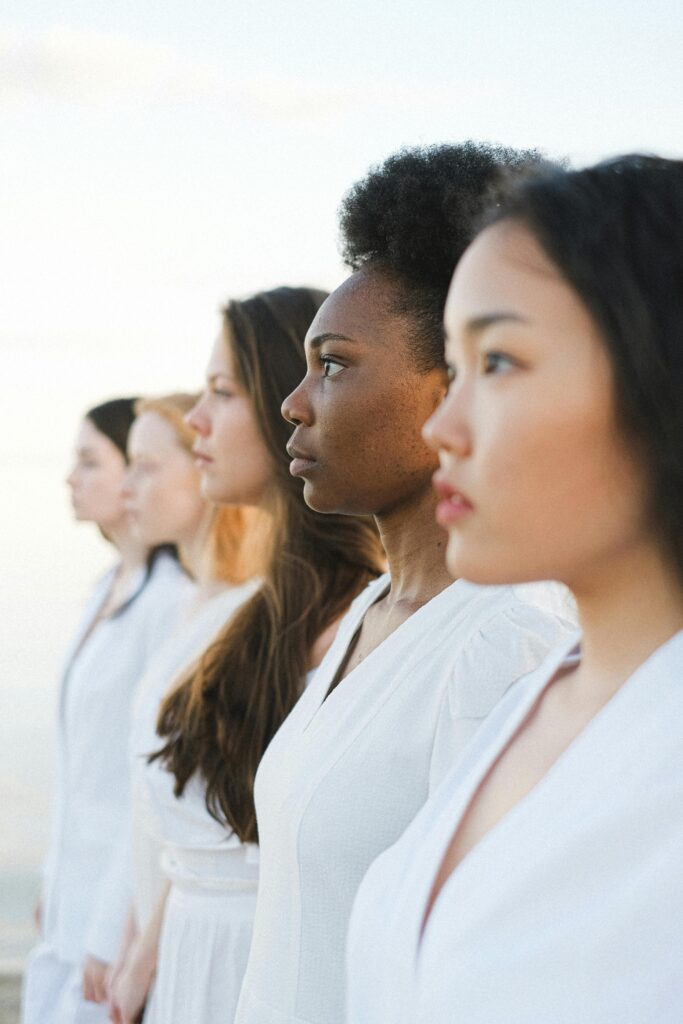
Have you ever stopped to reflect on who in your life truly sees and accepts you exactly as you are? Who loves you unconditionally??
Recently, I posed this question to my community: “Who in your life sees, loves, and witnesses you unconditionally just as you are?”
The responses were illuminating. Some named their children, others mentioned sisters, aunts, or partners. Not a single person mentioned their mother. And the most common initial reaction among many was surprise at who didn’t come to mind first, particularly partners.
For some, the question itself was confronting. One woman shared how she mentally went through her list of close relationships, asking, “Is it this person? No. This one? No.” She realized with a heavy heart that she couldn’t immediately identify someone who unconditionally witnessed her.
The Grief Behind Our Expectations
This question emerged from a personal experience I had while speaking at an event in Boston. It was a Monday after a school vacation week, and I was depleted both physically (recovering from a GI bug) and emotionally. That morning, my husband and I had fallen into a familiar pattern of frustration—one where I felt unsupported and unloved.
During the event, the facilitator asked: “What are you resisting grieving in your life?”
The answer that surfaced for me was unexpected: I was resisting grieving that my partner, as wonderful as he is, doesn’t witness or love me in the unconditional way I’ve always craved. I haven’t received it from my own Mother, and thus – the desperation to feel it and experience it with my partner is magnified.
It was a moment of clarity. Through my training in attachment theory and understanding our programming, I recognized that we often unconsciously seek in our partners what we didn’t receive from our primary caregivers. I was looking for my husband to be the emotionally mature, perfectly attuned presence that I never had in my mother.
But here’s the truth I had to face: he can’t consistently be that person for me because, like most of us, he’s still learning to be that person for himself. And it would be unfair to expect otherwise.
In that moment of acceptance, I felt the weight of collective grief, not just my own, but that of countless women who sit alone in their homes feeling unwitnessed and unloved, even when surrounded by people who love and care about them.
The Liberation Within the Answer
The second question posed that day was: “Where are you feeling called to love more deeply?”
While I was the first person to come to mind with the question posed above thanks to the work I do and teach in The School of MOM, I felt a very clear call to deepen my love for myself.
I get to be that consistent, compassionate presence. I am the only one who should be expected to unconditionally love, witness, and accept myself – foolproof, timeless, and on demand.
This realization isn’t a rejection of connection. On the contrary, it’s the foundation for healthier relationships. When I give myself what I need rather than desperately seeking it externally, something magical happens: the pressure on my partner diminishes, and, ironically, he ends up giving me more of what I need.
“It takes two to tango” is actually a myth when it comes to relationship dynamics. It takes just one person to change the dance. When I love myself unconditionally, I change the entire pattern of interaction.
Beyond Mother-Daughter Healing
For years in the School of MOM, we’ve focused on the mother-daughter relationship—what you didn’t get from your mother and how to model something different for your children.
But now I very clearly see it’s much bigger. It’s not just that your mother may not have been this unconditional loving presence; it’s that many of us don’t have that anywhere consistently.
Even those blessed with loving aunts, sisters, or adoring children must recognize that those relationships ebb and flow. Children grow up and individuate. Friends go through their own life challenges. No external source can be our unwavering rock 100% of the time.
The invitation is clear: become your own compassionate, attentive presence.
This doesn’t mean isolating yourself or dismissing the importance of connection. Rather, it means building your inner resources so that external support becomes the delicious icing on an already wholesome cake—not the desperate nourishment you’re seeking from a place of emptiness.
The Path Forward
When we become our own source of unconditional love—bringing online deep self-compassion, fierce boundaries, restful surrender, and joyful pleasure—everything shifts. We’re not waiting around for what we need, which allows us to truly receive love when it comes our way.
Resentment dissolves. Desperation fades. We can see our loved ones clearly for who they are and what they’re capable of, without the distorting lens of unmet needs.
This is the work we do in the School of MOM —becoming the “unicorns” who give ourselves what we need, thereby magnetizing the best in others and creating a ripple effect of compassionate presence in our families and communities.
It takes practice, community, skills, and a profound shift in your relationship with your body and yourself. But on the other side of this acceptance and grieving is a path to freedom—where your love for yourself becomes the biggest energy in the room.
So I ask you again: Who in your life sees, loves, and witnesses you unconditionally just as you are?
If your answer isn’t first and foremost yourself, perhaps it’s time to prioritize that relationship above all others.
This is at the heart of the work and PLAY we do in The School of MOM. Join us.
Your thriving should not be put off.
+ show Comments
- Hide Comments
add a comment